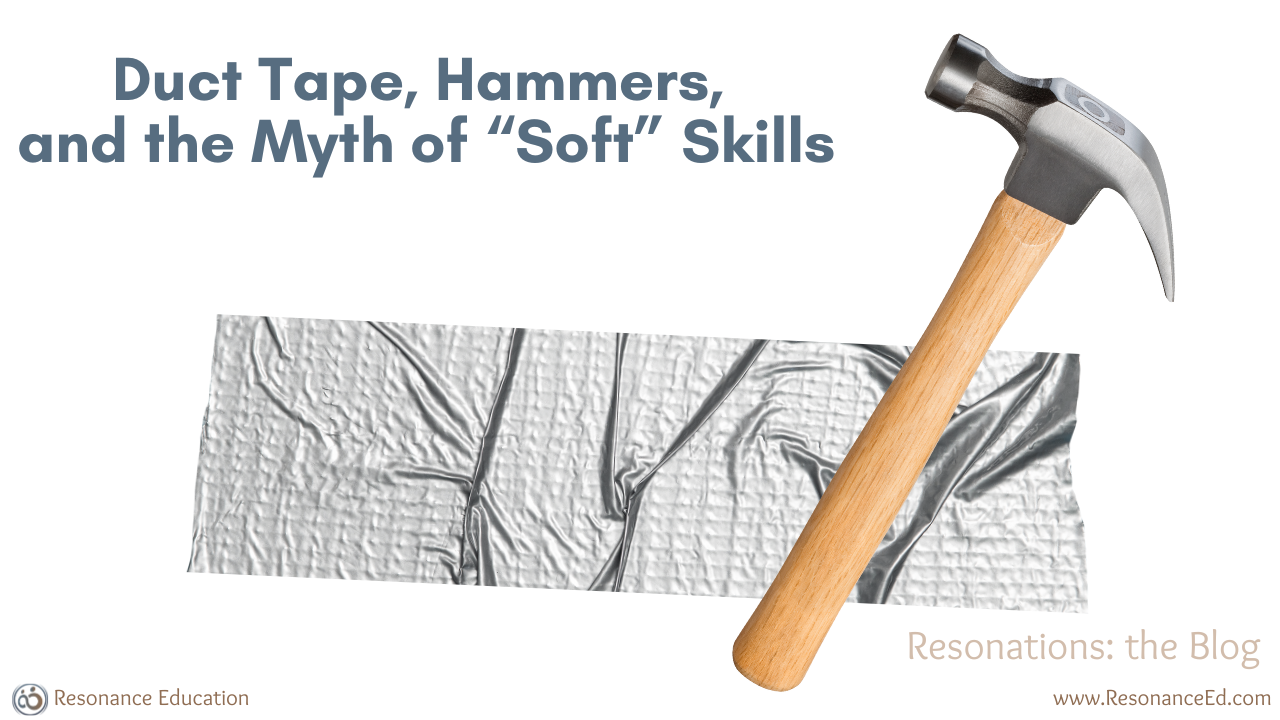Duct Tape, Hammers, and the Myth of “Soft” Skills
Sep 23, 2025

Near my kitchen, I keep two easy-to-grab baskets.
One holds a hammer, screwdriver, nails, and screws. I rarely use it, but when I do, it’s for something obvious, like hanging a whiteboard in my office, putting up a picture, or fixing a stubborn shelf.
The other basket holds the real workhorses: duct tape, scotch tape, and a glue gun. Those get used almost daily.
They may not look as “serious” as the hammer, but they solve more problems in a week than the hammer does in a month.
If someone peeked into both baskets, they might label the hammer as a “real” tool and the duct tape as a “soft” one, because it isn’t heavy, loud, or meant for the big jobs.
But anyone who has used duct tape to save a bracket on a shelf, hold a chair together, plug a small leak, or invent a quick activity to keep three young boys busy knows the truth: there’s nothing “soft” about a tool that holds things together. Sometimes, it even holds my sanity.
The SEL Connection
This same labeling problem happened in the late 1960s and early 1970s in the U.S. Army.
Researchers were studying why some units performed better than others, even though their technical training in weapons, logistics, and strategy was identical.
The deciding factors? Leadership, teamwork, adaptability, communication, and problem-solving.
They needed a way to categorize these differences.
-
Technical and operational skills became “hard skills” because they were measurable, specific, and concrete.
-
Interpersonal skills were labeled “soft skills.” Not because they were less important, but because they were harder to measure.
The name stuck.
Unfortunately, over time, “soft” started to sound like “optional” or “secondary.”
That was never the case.
Why This Matters
Social and emotional learning develops the exact abilities the Army was describing: managing emotions, working with others, adapting to challenges, and persisting when plans change.
Without these skills, technical ability can’t reach its full potential.
Calling SEL “soft” is like calling duct tape “optional.”
These are essential skills... the ones that hold everything together.
Try This Tomorrow
As the school year unfolds, take a moment to notice where SEL skills are already doing the quiet but powerful work of holding things together:
-
Where are things running smoothly because someone communicated clearly?
-
When has flexibility kept a small problem from becoming a crisis?
-
How often do empathy or listening shift the tone of a conversation?
-
Where can you point out the power of SEL skills in your classroom, team, or community?
The hammer might get all the credit as the “real” tool.
But more often than not, it’s the duct tape (the so-called “soft skills”) that keep everything from falling apart.



